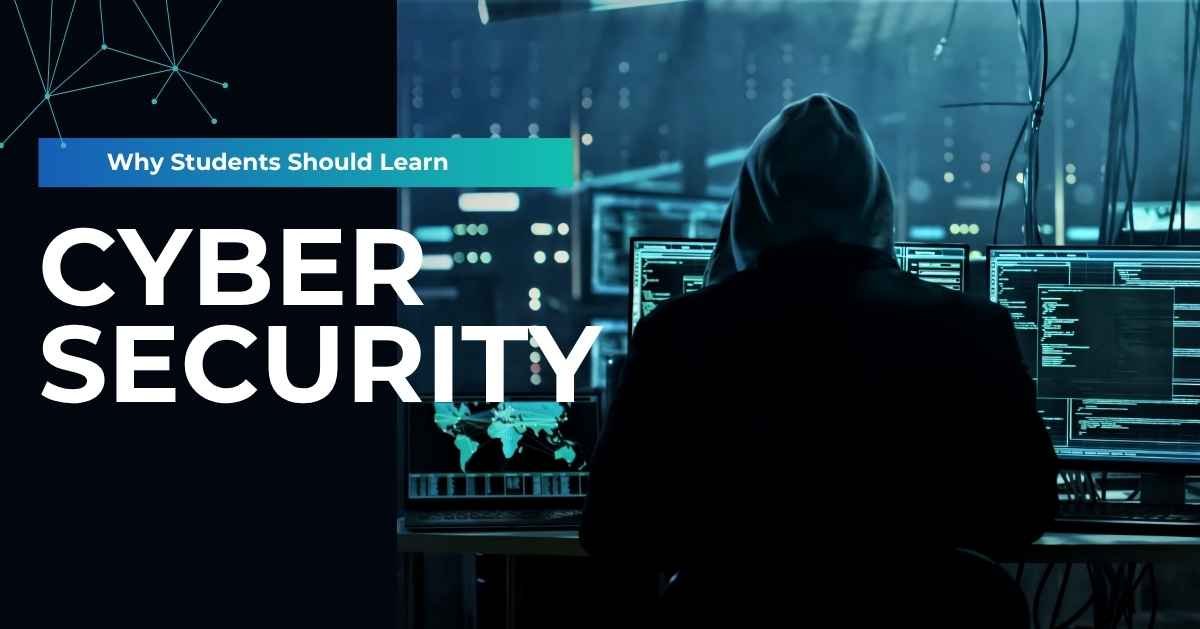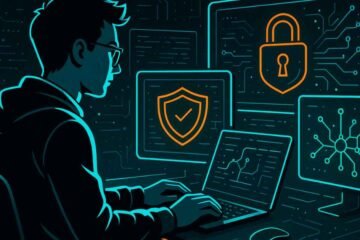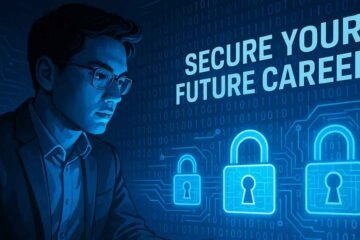In today’s technology-driven world, cybersecurity has become one of the most essential and rapidly growing fields. Every click, transaction, and communication online leaves behind digital footprints — and with that comes the increasing need for protection from cyber threats. Why Students Should Learn Cybersecurity in 202 is not only preparing themselves for an in-demand career but also becoming the digital defenders of the future.
This article explores why learning cybersecurity in 2025 is a smart and strategic move for students who want to secure their future in a tech-dominated world.
1. The Rising Demand for Cybersecurity Professionals
With the rapid adoption of artificial intelligence (AI), cloud computing, and Internet of Things (IoT), the digital landscape has become more interconnected than ever before. Unfortunately, this connectivity also increases vulnerability to cyberattacks.
According to global reports, cybercrime damages are expected to reach $10.5 trillion annually by 2025, making it one of the largest economic challenges in history. This has led to an unprecedented demand for cybersecurity experts who can protect data, networks, and systems.
Organizations across industries — from government agencies and healthcare to finance and e-commerce — are hiring skilled cybersecurity professionals to strengthen their defenses. Students who begin learning cybersecurity now can position themselves at the forefront of this booming job market.
2. Excellent Career Opportunities and Job Security
Cybersecurity isn’t just another IT job; it’s a career with longevity and stability. Unlike many other professions that can be automated, cybersecurity requires human intelligence, analytical thinking, and creativity.
In 2025, job titles such as Security Analyst, Ethical Hacker, Incident Responder, Network Security Engineer, and Cloud Security Specialist are among the top positions in demand. Moreover, cybersecurity professionals often enjoy higher-than-average salaries due to the critical nature of their work.
For students, learning cybersecurity today means building a career that offers:
- High earning potential
- Strong job security
- Continuous learning opportunities
- Global career options
Cybersecurity experts are needed in every country and sector, making it a universally relevant skill.
3. The Growth of AI and the Need for Cyber Defense
Artificial Intelligence (AI) has transformed how we use technology — but it’s also revolutionizing how hackers operate. AI-driven attacks, such as deepfakes, automated phishing, and intelligent malware, are on the rise.
To combat this, companies are investing heavily in AI-powered cybersecurity systems and hiring professionals who understand both AI and security concepts. Students who start learning cybersecurity in 2025 can integrate knowledge of machine learning, data science, and network defense to develop next-generation cyber protection systems.
By combining AI with cybersecurity, students can help build smarter, faster, and more adaptive security frameworks capable of preventing complex cyberattacks.
4. Increasing Cyber Threats in Everyday Life
Cyber threats are no longer limited to large corporations. In today’s connected world, every individual is a potential target. From identity theft and social media scams to ransomware attacks and data breaches, cybercrime has entered personal spaces.
Students frequently use online learning platforms, mobile banking apps, and social media — all of which are vulnerable to attacks if not secured properly. Learning cybersecurity gives students the power to protect themselves and their digital identities.
Understanding basic cybersecurity principles like:
- Creating strong passwords
- Identifying phishing emails
- Using two-factor authentication
- Avoiding malicious websites
…can go a long way in maintaining online safety and digital hygiene.
5. A Valuable Skill Across All Professions
Cybersecurity is not just for computer science students. Every profession in the digital age — from business and healthcare to law and education — relies on data and online systems.
- Business students can learn how to manage data securely.
- Healthcare students can protect patient records.
- Law students can specialize in cyber law and digital privacy.
- Education professionals can safeguard student information on digital platforms.
By gaining cybersecurity knowledge, students in any discipline add a valuable skill set that enhances their employability and career versatility.
6. The Role of Cybersecurity in National and Global Security
As governments worldwide move toward digital governance, cybersecurity plays a crucial role in national security and defense. Cyberattacks on infrastructure such as power grids, financial systems, and communication networks can have devastating consequences.
Countries are now forming specialized cyber defense units and intelligence departments to monitor and prevent digital warfare. Students trained in cybersecurity can contribute to national resilience and public safety by working with defense agencies or international organizations focused on cyber intelligence and security operations.
In short, learning cybersecurity means serving not just a company — but the nation and global community.
7. Entrepreneurial and Research Opportunities
The cybersecurity industry is continuously evolving, creating opportunities for innovation and entrepreneurship. Students can start their own security consultancy firms, develop new security tools, or create awareness platforms for online safety.
Moreover, the field offers endless scope for research in areas such as:
- Cryptography
- Quantum computing security
- Blockchain technology
- Cyber-physical systems
- Digital forensics
By diving into these emerging fields, students can contribute to technological advancements that make the digital world safer.
8. Easy Access to Learning Resources
Unlike a decade ago, learning cybersecurity in 2025 is more accessible than ever. Students can choose from:
- Online certification programs (like CompTIA Security+, CEH, and CISSP)
- University degree courses in cybersecurity
- Virtual labs and simulation platforms
- Free learning resources and YouTube tutorials
Platforms like Coursera, Udemy, and Cybrary offer hands-on training and beginner-friendly content. Even those without a technical background can start from basic concepts like network fundamentals, data encryption, and ethical hacking before moving on to advanced topics.
9. Empowerment Through Ethical Hacking
Learning ethical hacking allows students to think like cybercriminals — but for the right reasons. Ethical hackers test and strengthen systems to ensure they are impenetrable against real attacks.
By studying cybersecurity, students not only learn how to defend but also how to anticipate and prevent breaches. Ethical hacking is one of the most exciting and rewarding areas in cybersecurity, often involving problem-solving, creativity, and strategic thinking.
10. Building a Future-Ready Mindset
Cybersecurity education goes beyond technical skills — it builds a critical, analytical, and ethical mindset. Students learn how to assess risks, solve problems, and think ahead.
In 2025, where technology evolves faster than ever, being adaptable and security-conscious will be essential for survival in any career. By embracing cybersecurity learning, students are preparing themselves for a future where digital safety and intelligence define success.
Conclusion
As digital transformation continues to shape the world, cybersecurity is becoming the backbone of every modern system. In 2025, students who learn cybersecurity are not just investing in their careers but contributing to a safer digital future.
To gain the right skills, hands-on experience, and mentorship, students can enroll in Techsaavvy’s online cybersecurity training programs. Techsaavvy offers expert-led courses designed to equip learners with real-world cybersecurity knowledge — from ethical hacking and network defense to threat analysis and cyber law.
Whether you’re a beginner or an IT enthusiast, Techsaavvy helps you build a future-ready cybersecurity career and prepares you to become the digital protector the world needs.



